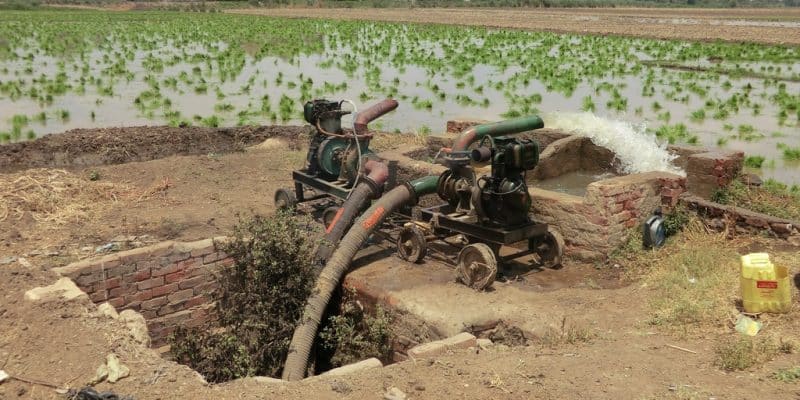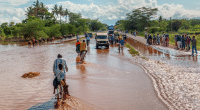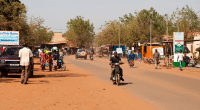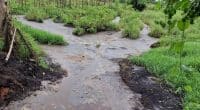In Africa, conflicts, economic shocks and soaring fertilizer prices have combined to create an unprecedented food crisis, accentuated in the last decade by drought, which is accelerating water stress, soil degradation and the alteration of the life cycle of flora and fauna. On the continent, the Sahel, with its semi-arid climate, is the region most affected. Faced with this situation, the World Bank recommends in a recently published study that more use be made of groundwater to improve agricultural yields.
“The role of groundwater in climate resilience in the Sahel”. This is the title of a study published by the World Bank’s water expertise unit on October 5 in Dakar, Senegal. The report was released at a “high-level dialogue” attended by sector ministers from Senegal, Mali, Mauritania, Burkina Faso and Chad, and development partners.
“The meeting highlighted the pressing need and promising opportunity to develop groundwater irrigation, which remains scarce in the Sahel,” explained Saroj Kumar Jha, Director of the World Bank’s Water Expertise Cluster. The Sahel is a vast semi-arid region of Africa, separating the Sahara desert to the north from the tropical savannahs to the south.
Building water boreholes
For the financial institution based in Washington, USA, in the event of drought, access to groundwater could reduce agricultural yield losses by 50%. s. “Groundwater, although invisible, is available all year round. Moreover, they are found almost everywhere in the Sahel, their microbiological and chemical quality is generally better, and they are used by animals and humans in view of their excellent quality, unlike surface water exposed to bacteriological or parasitic contamination and to heat”, says the World Bank.
To make better use of aquifers in the face of the food crisis in the Sahel, the financial institution recommends building and/or rehabilitating more wells and boreholes to supply farmers, setting up a sustainable groundwater management policy, as well as infrastructure management and maintenance systems. According to a report published in 2022 by the World Food Programme (WFP), this will help save the 12 million people threatened by food crises in the Sahel.
Meeting the challenge of sustainable groundwater use in this region of Africa will also require training local populations. “Groundwater specialists are the key to managing and preserving these resources. Sowing the seeds of knowledge in the fertile minds of young Sahelians will enable them to blossom into a vibrant force of scientific expertise capable of guaranteeing the sustainable use of groundwater”, explained Fatouma Touré Ibrahima, the World Bank’s sectoral water director for West Africa, at the high-level dialogue in Dakar.
Read Also –
The World Bank, through its International Cooperation on Water in Africa (CIWA) program, intends to facilitate investments that will reflect this interconnection in the Sahel, where groundwater development will also help improve pastoral productivity. This commitment has been taken on October 5, 2023, less than two weeks before the celebration of World Food Day on October 16.
Groundwater accounts for over 95% of freshwater resources in the Sahel. In the long term, there is a risk that the amount of water pumped from the water table will become too great, and rainfall insufficient, to recharge the aquifers exploited in the Sahel.
Inès Magoum






